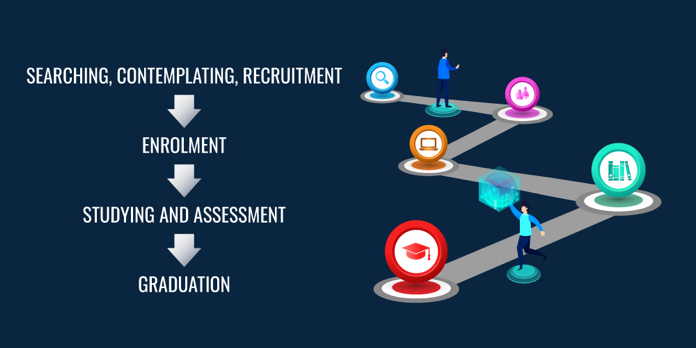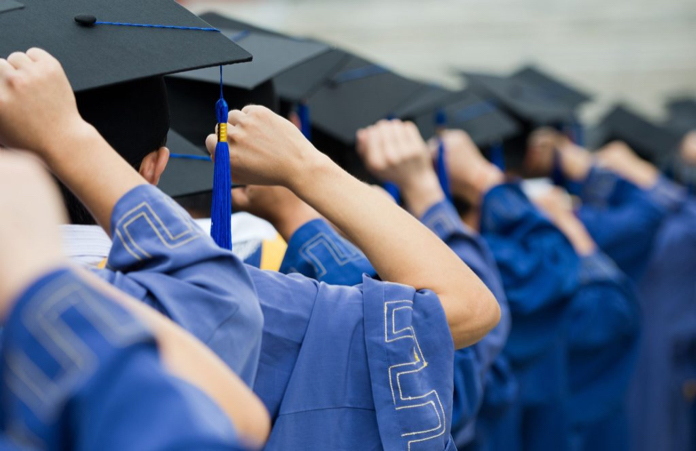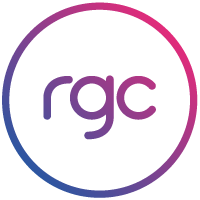
Education is a journey. It is a long-term and often ongoing experience we embark upon to attain knowledge and better ourselves. During this ‘student journey’, we often associate our schools, universities and other institutions merely as tools or locations we need in order to achieve our goals.
In fact, when we embark on the student journey the campuses, teachers and even intangible curriculums travel alongside us. For example, when someone decides to pursue a Master of Business Administration, the business school they enrol with becomes a companion every step of the way, providing the necessary support to help reach the finish line.
Student and the business schools, however, have different priorities and must prepare accordingly for each phase of the student journey.

Searching, contemplating and recruitment
At this stage, students are considering studying an MBA and are on the lookout for the business school that will best suit their needs. Students need to consider their personal commitments, professional workload, location and flexibility. These considerations are vital so early on in the process, and so business schools must respond in kind by providing accurate and up-to-date information on their MBA programs.

According to the Australian Skills Quality Authority, students have reported that it is important to them that the information they receive about their course before they enrol is factual and accurate, because many who are beginning their MBA student journey can often find the experience initially confusing.
Enrolment
At enrolment the journey to acquiring an MBA still demands research and preparation. Most MBA programs in Australia require students to already have completed an undergraduate degree and hold several years of professional experience before pursuing an MBA. Business Schools also provide their own iteration of the program on top of the core business outcomes, meaning the specialisations, electives, costs, course content and delivery mode (on-campus or online) will vary. The MBA student journey cannot begin if the student does not know what is required.
Similar to the recruitment phase of the journey, business schools must again ensure they are providing accurate advice to ensure it meets a student’s needs before they enrol. They must also ensure that their students can understand details about the course, such as how long the course will take, the study requirements and assessment methods.
Studying and Assessment
Notes, textbooks, online materials and other academic resources are of course essential items to carry through this phase of the student journey. However, when it comes to studying an MBA, students need more than tangible items to get them through to the other side. It has been touched on before but a good MBA kit bag must also include the right inner qualities and personal characteristics. Throughout their studies, MBA students must ensure they have determination, integrity, discipline, entrepreneurship, teamwork, critical thinking and a willingness to challenge prior knowledge.
It is at this point that business schools must provide all the necessary resources and support to maximise the outcomes for the student. According to the Australian Skills Quality Authority, it is important that:
- teachers, trainers and assessors are professional and knowledgeable about their subjects and industry areas,
- the amount of training is enough to allow students to practice new skills before they are assessed,
- students can access good-quality learning resources and facilities, and
- assessment activities are fair and well explained and students are given helpful feedback.
Many business schools have already addressed many of these elements in their MBA programs. For example, many schools appoint professors who have been or still are business professionals in their own right, resulting in classes being taught by former CEOs or current corporate directors.
Business schools must also be aware of the ‘support and progression’ phase of the student journey, which focusses on how they support students’ progression in their learning. This can be accomplished by providing easily accessible resources and materials like study support and study skills programs, mediation services, flexible scheduling and delivery, counselling services or referrals to these services and information and communications technology (ICT) support.
Graduation
The journey is over. Students have completed their studies and are eligible to receive an MBA. In this phase, students typically want to receive their certification in a timely manner to ensure they are not disadvantaged in seeking employment.

As for students; while the journey to achieving an MBA is over, it paves the way for a bigger journey of self-improvement, employment opportunities and career advancement. All there is left to consider is finding the will to use their newfound knowledge and achieve the success they desire in the business world.
Originally published on MBA News: www.mbanews.com.au/what-students-and-business-schools-need-to-pack-for-the-mba-journey


